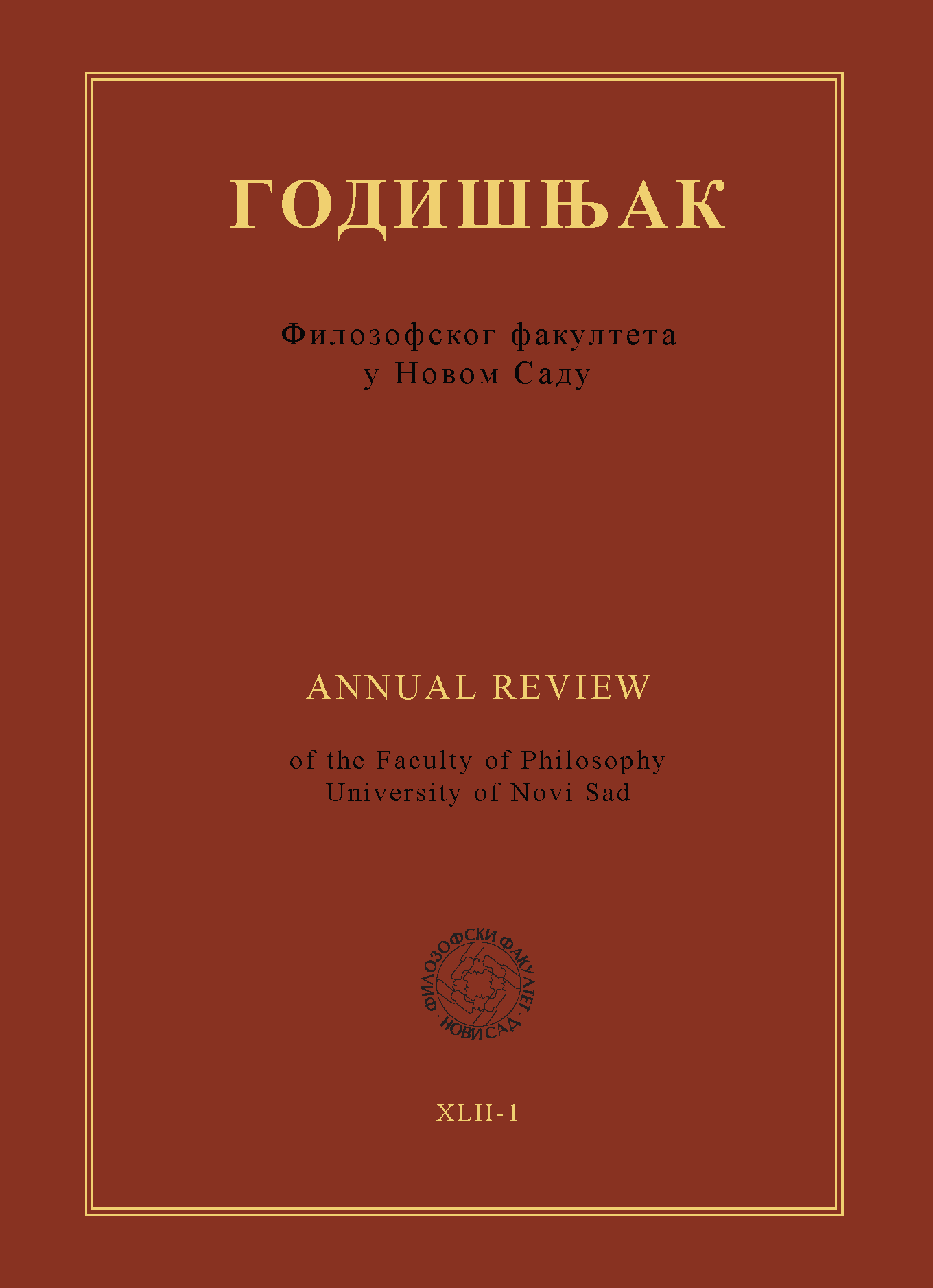METAPHORICAL SENSES OF ENGLISH ADJECTIVE HARD AND SERBIAN ADJECTIVE TVRD
Main Article Content
Abstract
Analiza predstavljena u ovom radu obuhvata identifikaciju pojmovnih metafora aktivnih u semantičkoj disperziji engleskog prideva hard i srpskog prideva tvrd, kao i utvrđivanje njihove produktivnosti. Cilj analize je poređenje metaforičkih obrazaca i njihove produktivnosti u semantičkim strukturama dva analizirana prideva, a time i sticanje uvida u sličnosti i razlike između engleskog i srpskog jezika u pogledu konceptualizacije apstraktnijih pojmova pomoću pojma fizičkog svojstva tvrdoće. Rezultati izvršene analize pokazuju da postoji značajan broj pojmovnih metafora zajedničkih za semantičke strukture prideva hard i tvrd, što ukazuje na visok stepen sličnosti između engleskog i srpskog jezika u pogledu konceptualizacije apstraktnih domena polazeći od fizičkog svojstva tvrdoće kao izvornog domena. Međutim, pomenuti zajednički pojmovni obrasci nisu jednako produktivni u semantičkim strukturama dva prideva, a takođe utvrđeni su i slučajevi u kojima su na osnovu istog pojmovnog obrasca izvedena različita značenja u dvema strukturama.
Ključne reči: polisemična struktura, semantička disperzija, pojmovna metafora, metaforički obrazac, domen tvrdoće, metaforičko značenje, engleski jezik, srpski jezik.
In this paper, there have been identified conceptual metaphors activated in the semantic dispersion of the English adjective hard and the Serbian adjective tvrd. Also, there has been determined the productivity of each of the identified metaphorical patterns in sense derivation. The aim of the analysis has been to compare the mentioned patterns and their productivity in the semantic structures of the two adjectives. Such a comparison has provided an insight into similarities and differences between English and Serbian concerning the conceptualization of abstract notions using the notion of physical hardness as a source domain. The results of the analysis have shown that most of the identified metaphorical patterns are common for both semantic structures in question. Therefore, it has been concluded that there is a considerable similarity between English and Serbian taking into account the conceptualization of abstract notions using the notion of hardness as a source domain. However, the given common patterns are not equally productive in the two semantic structures. What is more, it is a frequent case that, on the basis of the same conceptual metaphor, completely different senses have been derived in the semantic structures of the two adjectives.
Key words: polysemous structure, semantic dispersion, conceptual metaphor, metaphorical pattern, domain of hardness, metaphorical sense, English, Serbian.
Downloads
Article Details
References
Dragićević, R. (2007). Leksikologija srpskog jezika. Beograd: Zavod za udžbenike. (objavljeno ćirilicom)
Evans, V.–Green, M. (2006). Cognitive Linguistics. An Introduction. Edinburgh: Edinburgh University Press.
Gortan-Premk, D. (2004). Polisemija i organizacija leksičkog sistema u srpskome jeziku. Beograd: Zavod za udžbenike i nastavna sredstva. (objavljeno ćirilicom)
Klikovac, D. (2004). Metafore u mišljenju i jeziku. Beograd: Biblioteka XX vek.
Knowls, M.–Moon, R. (2006). Introducing Metaphor. London, New York: Routledge.
Kövesces, Z. (2002). Metaphor. A Practical Introduction. Oxford: Oxford University Press.
Lakoff, G.–M. Johnson. (1980). Metaphors We Live By. Chicago: University of Chicago Press.




